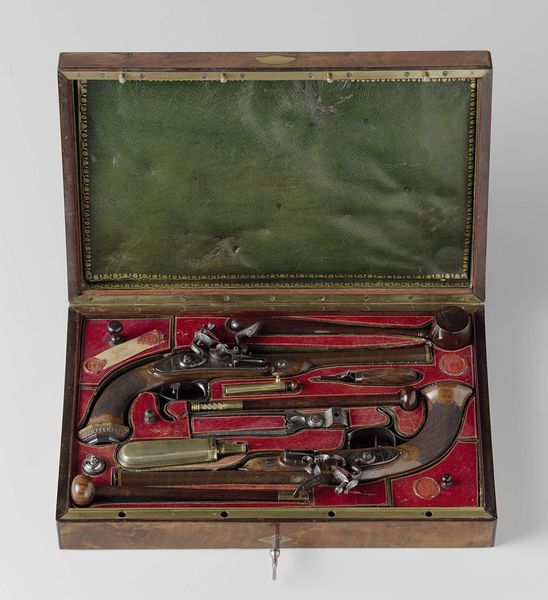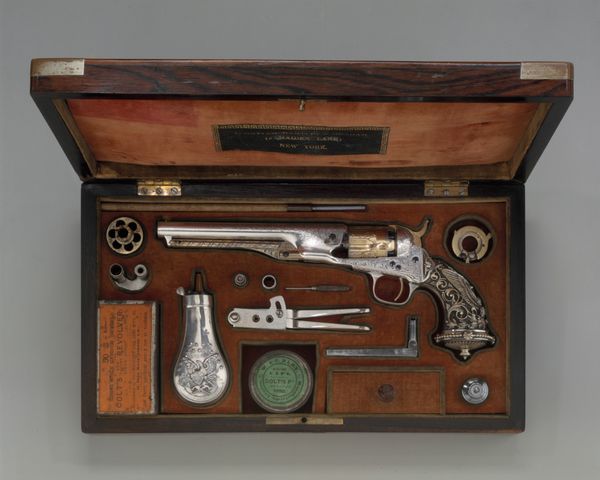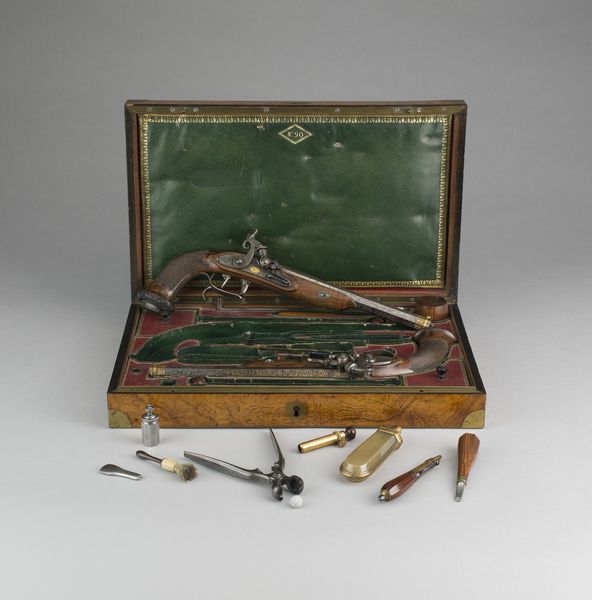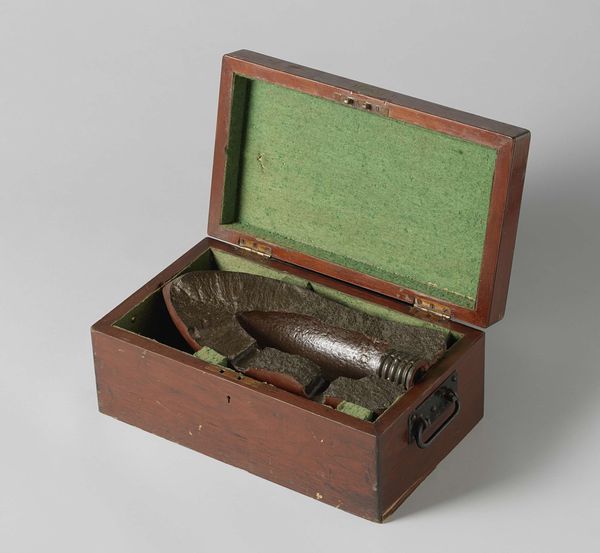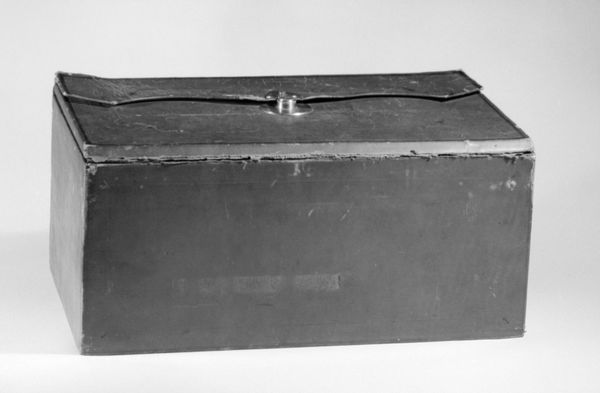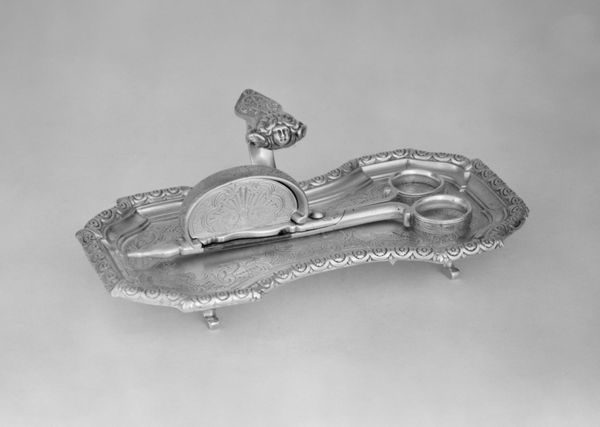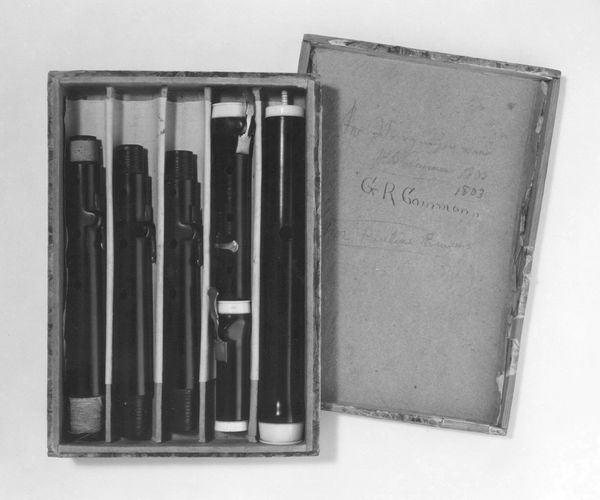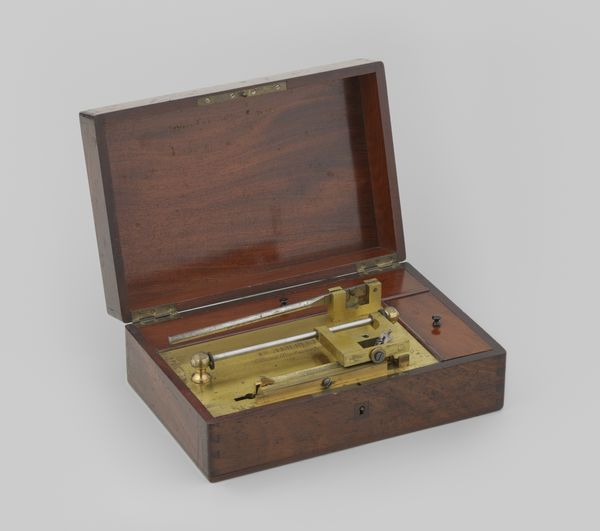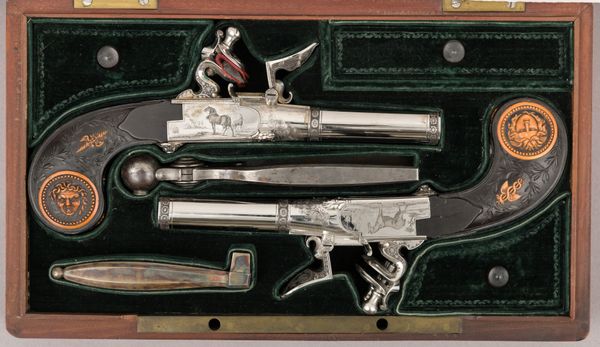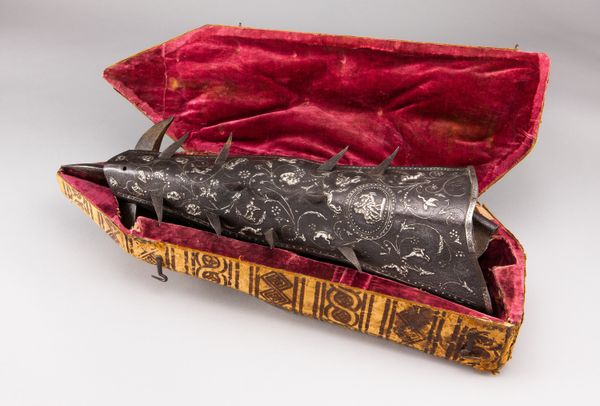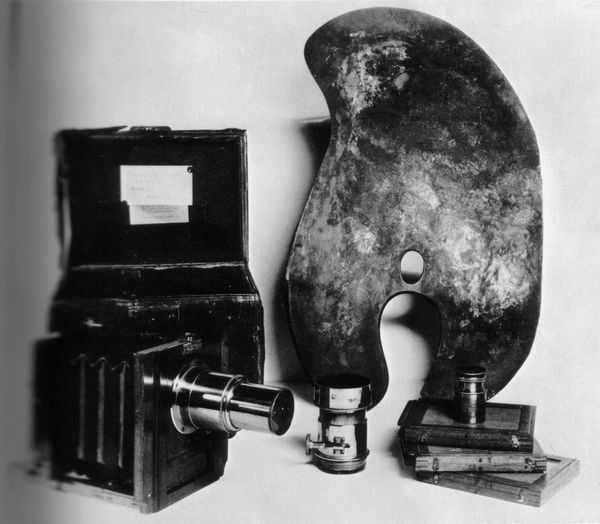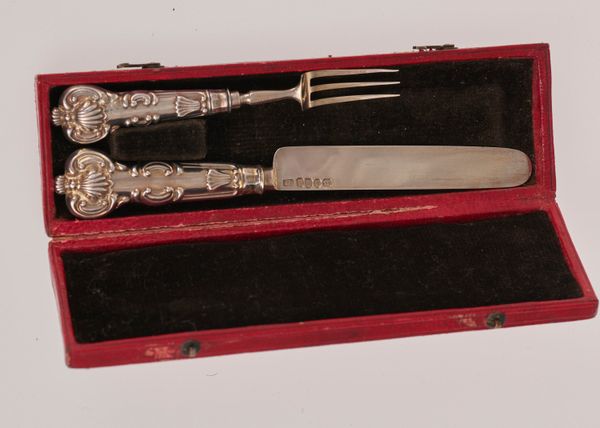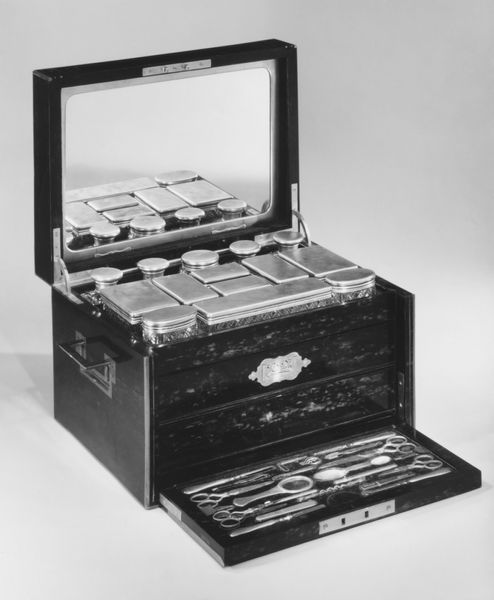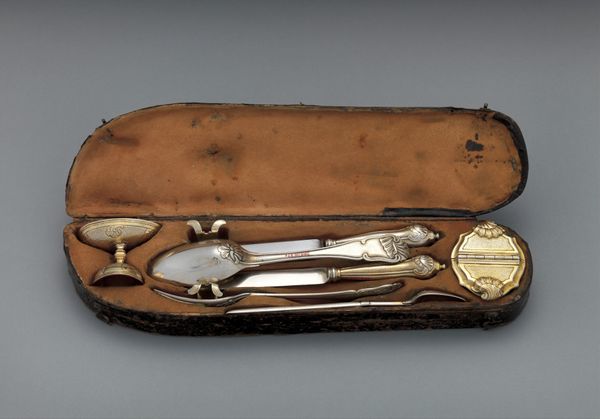
Breech-Loading Rimfire Cartridge Pistol with Case and Accessories 1830 - 1880
found-object, photography, sculpture
sculpture
found-object
sculptural image
photography
black and white theme
close-up shot
sculpture
france
Dimensions Pistol (a); L. 13 3/8 in. (33.9 cm); L. of barrel 8 3/8 in. (21.2 cm); Cal. .22 in. (5.6 mm); forked cleaning rod (b); L. 9 9/16 in. (24.3 cm); Wt. 1 oz. (28.3 g); scourging rod (c); L. 9 11/16 in. (24.6 cm); Wt. 1.1 oz. (31.2 g); cartridge box (d); H. 1 1/4 in. (3.2 cm); Diam. 2 in. (5.1 cm); Wt. 1.7 oz. (48.2 g); screwdriver (e); L. 3 1/16 in. (7.8 cm); Wt. 0.5 oz. (14.2 g); case (f); H. 2 3/16 in. (5.6 cm); W. 14 1/2 in. (36.8 cm); D. 8 5/8 in. (21.9 cm); Wt. 1 lb. 14.6 oz. (867.5 g); key (g); L. 1 1/8 in. (2.9 cm)
This is a cased breech-loading rimfire cartridge pistol, with accessories, made by Louis Nicolas Auguste Flobert in 19th-century Paris. Consider the cultural context: the rise of industrialization, urbanization, and a growing middle class. Firearms, once symbols of military power or hunting tools for the elite, were becoming more accessible to a broader population. Flobert's design, utilizing a rimfire cartridge, simplified the firing mechanism, making it more reliable and affordable. Now, what does it mean to encase such an object in a velvet-lined box, with cleaning tools and cartridges neatly arranged? The pistol becomes not just a functional item, but a collectible, a display of status, and a symbol of the owner's control over technology. The pistol's existence raises questions about the changing nature of violence, power, and social order in 19th-century Europe. To fully understand this artwork, we might delve into trade catalogues, patent records, and social histories of gun ownership, illuminating the complex relationships between technology, society, and individual agency.
Comments
No comments
Be the first to comment and join the conversation on the ultimate creative platform.
